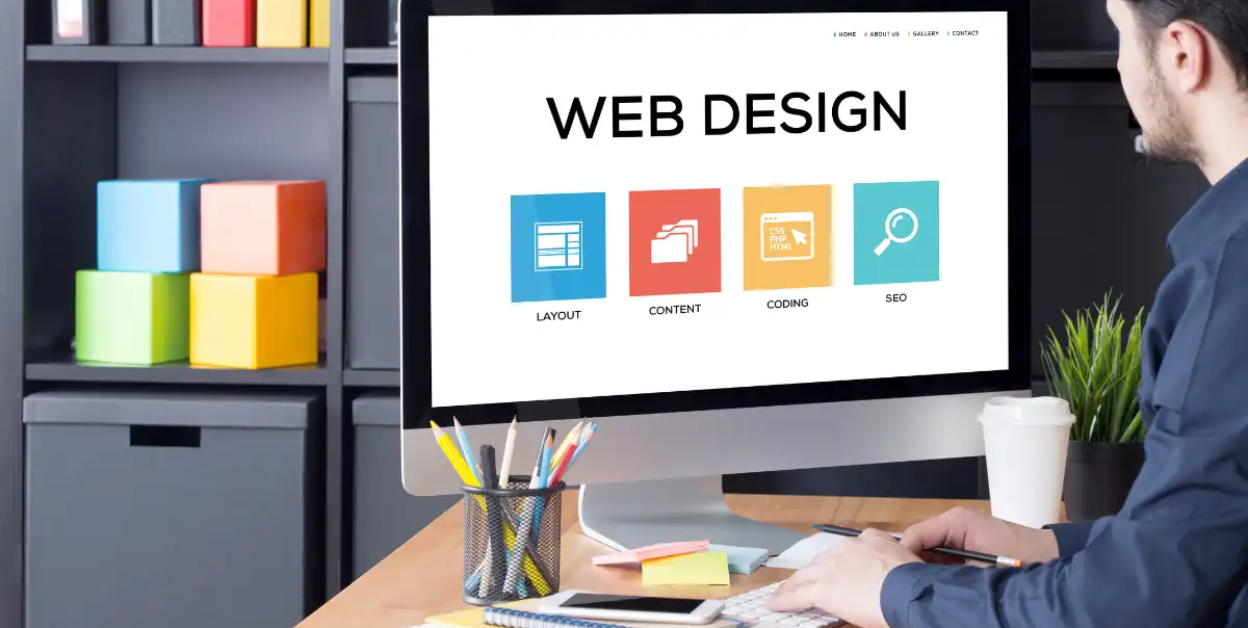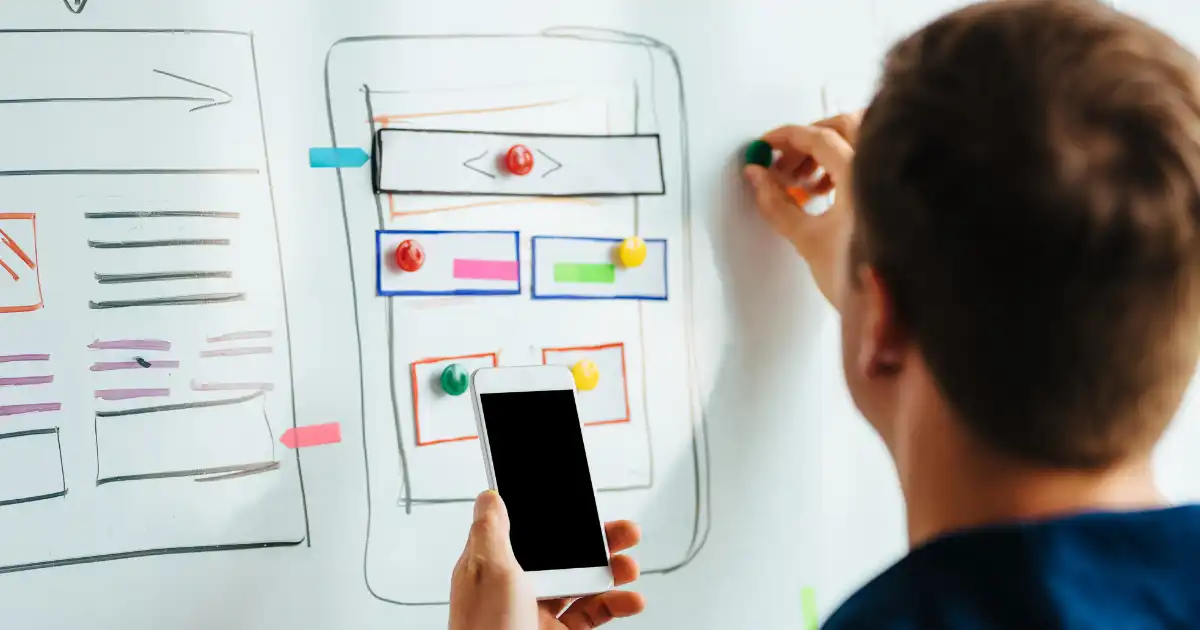What is Web Design, and How Can It Help Your Business?
Web design is an important part of your business and can significantly impact your success

What’s the first thing you do when researching a business or brand? You search for their website, right? Statistics say 75% of the credibility of a website comes from its design! Most site visitors decide to linger or leave within just a few seconds.
So what is web design? Web design refers to creating and organizing content for a particular website. It makes mobile apps, web pages, and websites attractive to their target audience — and involves selecting and arranging images, colors, fonts, and content to create visually pleasing layouts that are easy to interact with. Functional elements and appealing visual design are so important! Designers consider the color scheme, typography, the site’s layout, usability, and navigation – all visual elements that appeal to users.
Good web design can be found everywhere, even in the everyday things we do! Consider a restaurant menu, for example; you wouldn’t find appetizers next to desserts, which would confuse customers! Likewise, a website or web page should have clear sections and organization to make it easier for visitors to find what they’re looking for.
The difference between web design and website development.
One of the first things most people ask is, “what’s the difference between web design and web development?”
Web designers focus on visual elements and design of web apps and sites — website developers are more concerned with the website’s structure.
Think of it this way: web designers are like chefs in the kitchen – making sure everything looks nice and tastes good! Web developers are like waiters – they ensure everything is served up correctly and the customer’s needs are met.
Types of web designers
What is the difference between UX (user experience design)and UI (user interface design)?
User experience (UX) designers focus on site visitor experience—their goals and objectives. These professionals design products and services that meet users’ needs.
User interface (UI) designers focus on what elements should be displayed to users and how they should look. They create a visual layer for web products, such as what buttons and menus should look like, what fonts are used, what colors are chosen, and what icons appear on what page.
In short, UX web designers work on what users need, while UI web designers focus on what users see. Both are essential for creating a successful web product, as they work hand in hand to create an optimal experience.
Web design tools and languages
Web designers use a variety of tools and languages to create websites. Some popular tools include Adobe Dreamweaver, Photoshop (for graphic design), and Sketch.
Cascading Style Sheets (CSS) is a styling language to create visually appealing web pages. It’s what allows designers and developers to control the look of their website, from font sizes and colors to margins and padding.
Website builders are software tools that allow users to create websites without coding knowledge. They provide simple drag-and-drop interfaces for creating pages and laying out content. Most website builders also have themes or templates available to make web design easier — but using a website builder may not result in the same level of functionality as a custom site.
Five essential elements of web design
When designing a website, five essential elements make up an effective web design. These include layout, typography, navigation, images, and color.
- Layout refers to how different website and graphic elements are arranged on a page.
- Color evokes emotion and creates visual interest.
- Typography determines how the text looks and is displayed.
- Imagery is any visuals used on the website, like photographs or illustrations.
- Content includes all text on the site.

Adaptive design vs. responsive design
Adaptive website design is a method of creating websites based on predetermined layouts. These layouts are optimized for desktops, tablets, and mobile phones. This type of design allows for more control over the look and feel of the page but can be more time-consuming to create.
Responsive website design focuses on creating pages that respond to the user’s device by adjusting the layout based on screen size. This type of design is easier to make since it uses fewer lines of code. However, it can be less precise than adaptive web design. Responsive sites may not always look perfect across all devices.
A responsive website is an excellent option for businesses looking to provide visitors with an optimal experience across any device. Responsive websites use fewer lines of code and automatically adjust based on the user’s device, requiring less maintenance.
How does web design impact search engine optimization?
Good web design can positively impact SEO. A well-designed website is much easier to navigate and allows visitors to quickly find the content they are looking for. Site navigation that is easy to use also helps search engines index your website correctly, allowing them to crawl your pages more efficiently. Additionally, an optimized website will load faster, allowing visitors to access your content quickly and decreasing the bounce rate.
Finally, web design affects SEO by influencing the user experience. A website that is visually appealing, easy to use, and offers valuable content will likely draw visitors in and keep them engaged. This positive user experience can help improve SEO rankings.

The Advantages of Hiring a Professional Web Designer
Hiring a professional web designer can be beneficial for businesses looking to create an effective, user-friendly website. Professional designers have the skills and experience needed to create visually appealing websites. With their help, you can create a unique website tailored to your needs and have peace of mind knowing it’s been made with the best practices in mind.
As an added convenience, professional web designers often offer maintenance services, which can benefit those who don’t have the time or energy to maintain the key elements of their website.
TIPS:
If you’re considering hiring a web designer, it’s essential to look for someone with more than just basic skills — someone knowledgeable and experienced in the web design industry. You should ask potential designers about their portfolio of work as well as references from past clients.
Ask questions: what coding language(s) are they familiar with, what design processes do they employ, and how do they keep up with trends in the industry? Do they specialize in UX design or UI design? How do they test your site across different web browsers?
Don’t let poor web design or a slow website hold your business back!
Web design is an important part of your business and can significantly impact your success. It’s essential to hire a professional web designer who understands the latest trends and technologies in design. LCMS Digital Solutions has the experience and expertise to create an attractive, easy-to-use website for your business that functions properly.
We understand the importance of good design and focus on creating a website that reflects your brand in an engaging way. Our collaborative process ensures your website’s design project is a success. Contact us today to get started on your dream website!